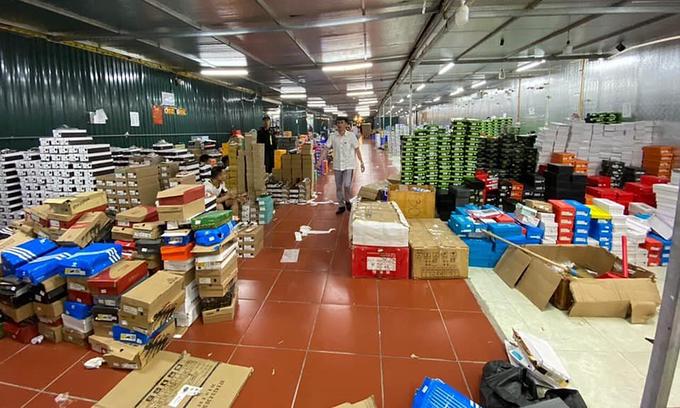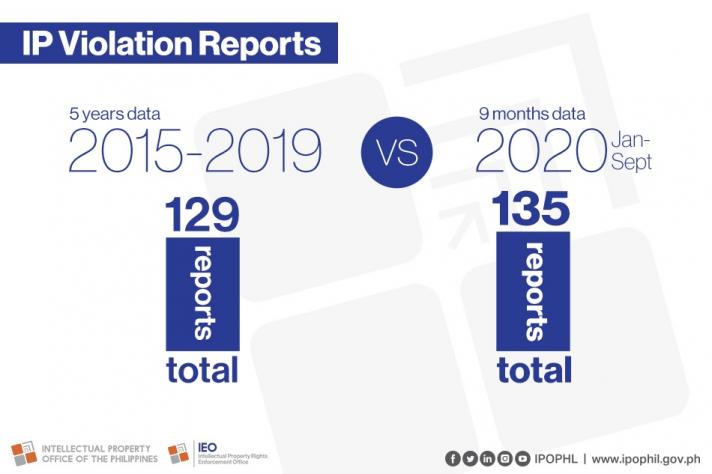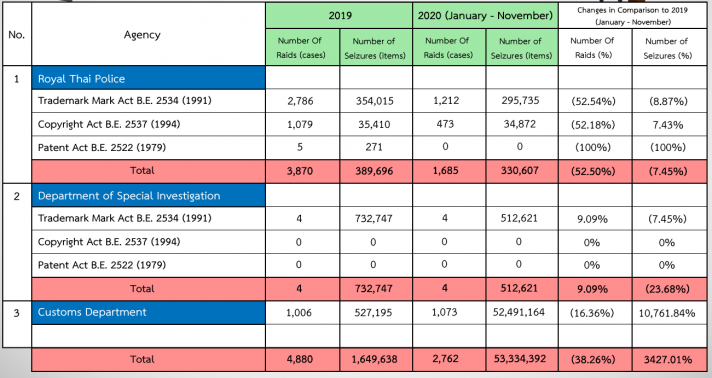Over the past few years, South-East Asia (SEA) has witnessed a huge shift to, and booming expansion in, online shopping platforms. As a result, counterfeiters have also quickly adapted to the new trade environment, making large profits by flooding the digital marketplace with a huge amount of counterfeit products. At the same time, governmental agencies need months or even years to update their regulations and rules to catch up. In this article, we will update you on how regulatory authorities in SEA are stepping up to tackle intellectual property (IP) infringement issues in the e-commerce market.
Global consumer shopping habits have changed considerably over the years. According to research conducted by Salesforce, 87% of customers conduct online searches while making decisions on purchases[1]. This has driven brand owners to embrace this trend and shape consumer habits in a way that is favourable for their growth. For example, nowadays live-streaming tactics or the opinions of influencers are very effective solutions for leveraging product sales. In a new report from Payoneer[2], since the height of Covid-19 (March–April 2020), the live-streaming sector has grown by 45% and the live-streaming market is expected to be worth USD 184.3 billion by 2027.
Photo source: https://www.pexels.com/
More importantly, the Covid-19 pandemic has been one of the most influential factors ever to accelerate digitalisation and shift businesses and consumers online. The new e-Conomy South-East Asia (SEA) research program[3] by Google, Temasek and Bain has revealed significant changes in the digital life of the region. In 2020 alone, 40 million new users joined the internet, making a total of 400 million internet users (which now accounts for 70% of the South-East Asian population). On average across SEA, one of every three (~36%) digital service consumers are new to the service due to Covid-19, and 94% of those intend to continue with the service post-pandemic.
From a legal perspective, the thriving evolution of the digital market has also created a fertile ground for listings that infringe on IP. Let’s take a deeper look at the development of the counterfeiting market online in some SEA countries and analyse the government reactions to these threats.
In Vietnam, during 2020, the national market surveillance agency carried out a high number of raids and seized fake products bound for the market through online sales. Many Vietnamese sellers are willing to pay to advertise their products in order to reach a large audience on Facebook, YouTube, TikTok or Zalo (a widely used messaging app). Live-streaming is used to present products to consumers and encourage them to commit to purchases in a short time. This quickly increases sales of overwhelmingly counterfeit products. For example, vendors in Lao Cai Province (located near the border with China) sourced products from China to sell online, and have made approximately USD 28 million within the past two years[4].
Photo source: https://e.vnexpress.net/
In December 2019 Vietnam’s Ministry of Industry and Trade (MoIT) launched a portal http://chonghanggia.online.gov.vn/ to deal with e-commerce disputes and counterfeits. Individuals and businesses can now access the portal and report infringing activities, such as fake products, brand violations, fraudulent websites or apps, etc. After receiving the information, the respective agencies (such as the eCommerce and Digital Economy Agency, the Market Surveillance, Competition and Consumer Authority, and the Department of Industry and Trade) will work together to settle the case and inform the complainant about the result.
Moreover, a new e-commerce decree has been drafted and is expected to be released soon. This will restrict the sales of fake goods on e-commerce platforms and monitor online trading activities. The decree states that e-commerce platform operators are required to proactively prevent prohibited goods and services, remove them within 24 hours of receiving a request from competent agencies, and to co-operate with relevant rights holders to take-down IP-infringing content or products[5].
Another interesting country to observe is the Philippines, which has witnessed an unprecedented surge of IP-violation complaints during the pandemic. The IP Rights Enforcement Office (IEO) of the IP Office of the Philippines (IPOPHL) received up to 135 complaints in only 9 months in 2020, surpassing the total complaints received in the previous 5 years (2015–2019)[6].
Source: https://www.ipophil.gov.ph/
Among the 135 complaints, 79 are related to online activities. With the alarming increase of IP-violation reports on digital platforms, the IPOPHL set the IEO the task of proposing updates to the 2013 Rules and Regulations on Enforcement as a high priority in order to help the agency to effectively monitor infringement online.
In addition, the IPOPHL is working on an agreement between e-commerce platforms and representatives of rights holders related to requests to take-down IP-infringing content or products. The IPOPHL also strongly supports the adoption of the solidary liability principle in order to improve the online environment by making platforms and service providers entirely accountable for the infringing acts of their client vendors.
Thailand saw a sharp increase in seizures related to IP violations over the course of 2020. According to IP enforcement statistics from the Royal Thai Police[7], the Department of Special Investigation, and the Customs Department, the number of seized items from January to November 2020 (compared with the total amount of seized items in 2019) increased dramatically, by up to 3 427.01%. The majority infringed trade marks and copyright.
IP Enforcement Statistics (Calendar Year) (January – November 2020)
(by the Royal Thai Police, the Department of Special Investigation and the Customs Department)
Source: https://www.ipthailand.go.th/
To encourage the fight against online counterfeiting, a Memorandum of Understanding (MOU) on the protection of IP rights on the internet was signed between the major online platforms operating in Thailand (Lazada, Shopee, and JD Central) and the representatives of IP rights holders on 11 January 2021[8]. This MOU is expected to facilitate the take-down process on e-commerce platforms, and reduce the amount of fake products being sold online in Thailand.
According to a recent report from the European Commission (the Counterfeit and Piracy Watch List[9]), Indonesia has three e-commerce sites (Bukalapak, Shoppee, Tokopedia) that are to be included in the watch list. They allegedly sell high volumes of counterfeit goods such as electronics, clothing, fashion items, accessories, books, films, mobile phones, cars, spare motor parts and industrial goods. These sites are the top three most popular B2B platforms in the country – Shopee is the most clicked e-commerce site, followed by Tokopedia and Bukalapak. The proactive measures for filtering and detecting infringing offers on the above-mentioned sites are allegedly ineffective, and their processes for removing counterfeit listings are still unreasonably long.
While online counterfeiting is becoming a critical issue in Indonesia, the government has made some initial progress in addressing concerns about it by recently issuing Regulation No. 80 of 2019[10] and Regulation No. 50 of 2020[11]. These regulate several aspects of e-commerce trading, and includes obligations for protecting consumers. The regulations state that e-commerce businesses must provide a complaint service for consumers, must have proper complaint procedures, and must set out a time period for resolving complaints. Moreover, e-commerce operators have to establish a consumer complaint service including the contact details of the Directorate-General of Consumer Protection and Trade Compliance. In addition, consumers can make complaints about online ads that are not in compliance with the relevant laws and regulations through the Director-General of Consumer Protection and Trade Compliance.
Due to SEA’s geographical proximity to China (known as a hotspot for counterfeiting goods but also as a booming centre of online trading), significant efforts are required from governmental agencies in SEA to improve regulations, enhance the effectiveness of their enforcement agencies and establish user-friendly complaint systems to deal with thriving IP-infringing listings in the digital trading environment.
Importantly, IP rights owners should proactively monitor e-commerce and social media platforms to detect counterfeits and quickly proceed with the most appropriate resolution such as take-down notices, warning letters or informing the competent authorities so they can remove the IP-infringing items.
The SEA IP SME Helpdesk developed and published a Guide on How to Remove Counterfeit Goods from e-commerce Sites in South-East Asia, which can be downloaded here.
For more information about IP in SEA, check out our website at https://www.southeastasia-iprhelpdesk.eu/.
The SEA IP SME Helpdesk is an EU initiative that provides free, practical IP advice to European SMEs in SEA. EU companies can send questions to question@southeastasia-iprhelpdesk.eu and will receive a reply within 3 working days.
[1] https://www.salesforce.com/blog/customer-retail-statistics/
[2] https://register.payoneer.com/the-state-of-live-streaming-in-2020/
[3] https://www.bain.com/globalassets/noindex/2020/e_conomy_sea_2020_report…
[4] https://e.vnexpress.net/news/business/economy/vietnam-unhappy-with-face…
[5] https://www.vir.com.vn/new-draft-decree-tackles-e-commerce-drawbacks-77…
[6] https://www.ipophil.gov.ph/news/jan-sept-2020-reports-complaints-on-ip-…
[7] https://www.ipthailand.go.th/en/ipr-enforcement-operation/item/total202…
[8] https://satyapon.com/mou-on-protecting-ip-rightd-on-the-internet-signed/
[9] https://trade.ec.europa.eu/doclib/docs/2020/december/tradoc_159183.pdf
[11] https://www.aseanbriefing.com/news/indonesia-issues-implementing-regula…
Details
- Publication date
- 17 February 2021




